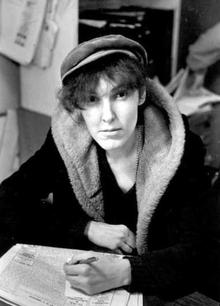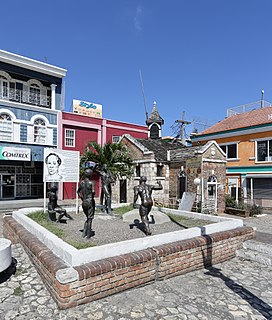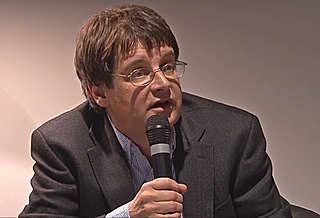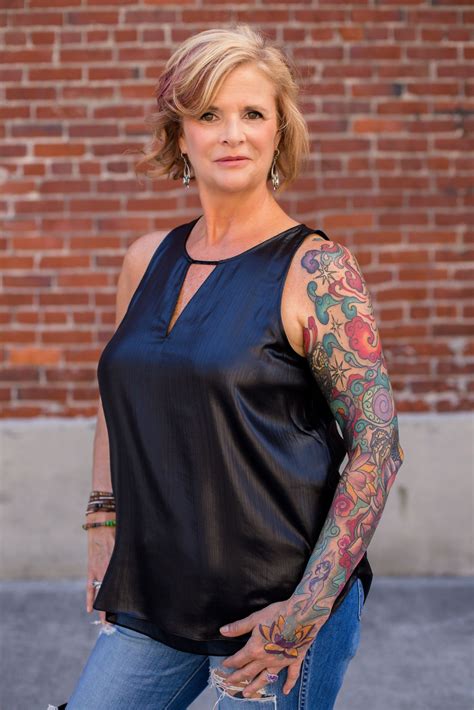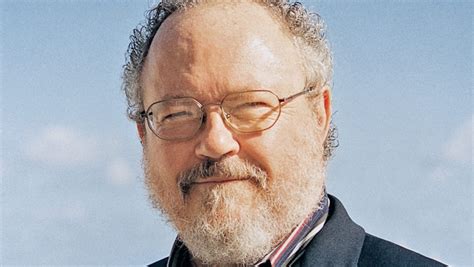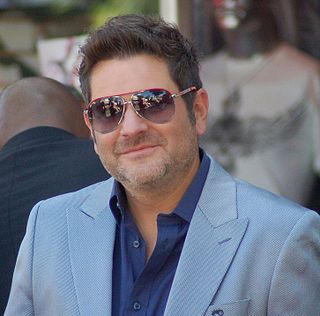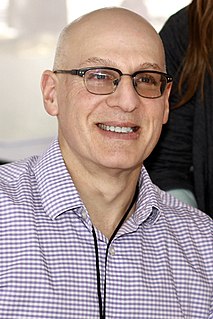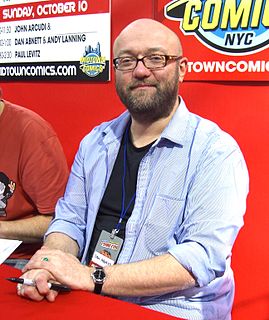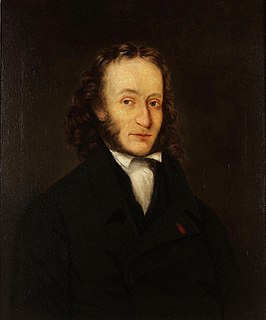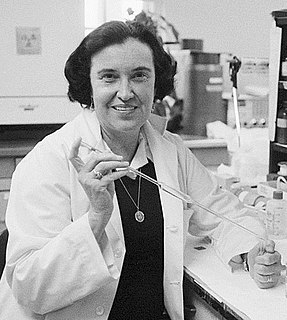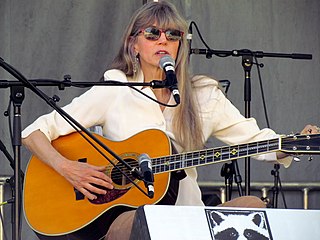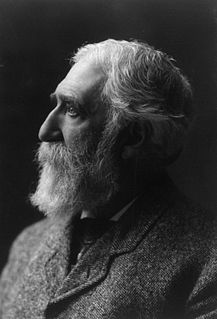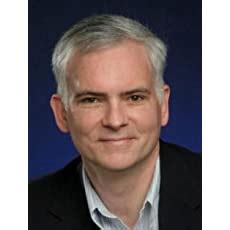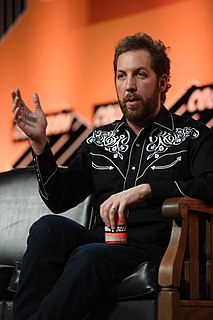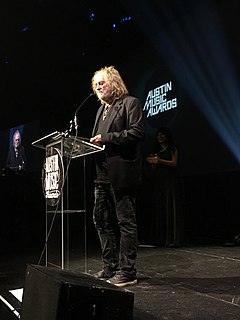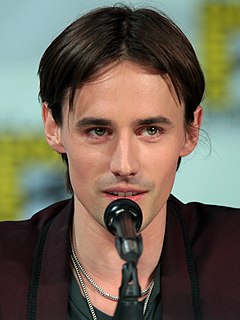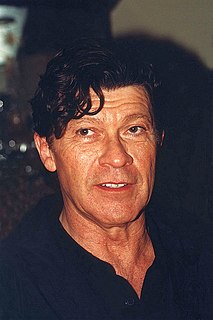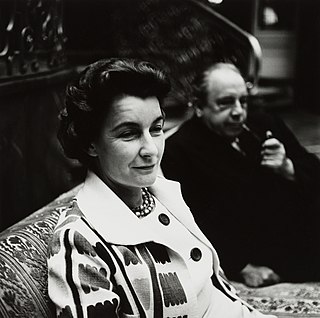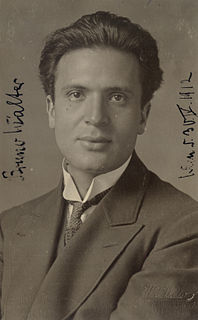Top 735 Earliest Quotes & Sayings - Page 12
Explore popular Earliest quotes.
Last updated on December 22, 2024.
The patriarchal, the Jewish, and the Christian dispensations, are evidently but the unfolding of one general plan. In the first we see the folded bud; in the second the expanded leaf; in the third the blossom and the fruit. And now, how sublime the idea of a religion thus commencing in the earliest dawn of time; holding on its way through all the revolutions of kingdoms and the vicissitudes of the race; receiving new forms, but always identical in spirit; and, finally, expanding and embracing in one great brotherhood the whole family of man! Who can doubt that such a religion was from God?
Wanted or unwanted, I believe that human life, even at its earliest stages, has certain rights which must be recognized – the right to be born, the right to love, the right to grow old... When history looks back to this era it should recognize this generation as one which cared about human beings enough to halt the practice of war, to provide a decent living for every family, and to fulfill its responsibility to its children from the very moment of conception.
From its earliest days, the Cuban Revolution has also been a source of
inspiration to all freedom-loving people. We admire the sacrifices of the Cuban people in maintaining their independence and sovereignty in the face of the vicious imperialist-orquestrated campaign to destroy the impressive gain made in the Cuban Revolution. Long live the Cuban Revolution. Long live comrade Fidel Castro.
The male is just a bundle of conditioned reflexes, is incapable of a mentally free response, is tied to his early conditioning, is determined completely by his past experiences. His earliest experiences are with his mother, and he is throughout his life tied to her. It never becomes completely clear to the male that he is not part of his mother, that he is him and she is her.
The well-nurtured youth is one who would see most clearly whatever was amiss in ill-made works of man or ill-grown works of nature, and with a just distaste would blame and hate the ugly even from his earliest years and would give delighted praise to beauty, receiving it into his soul and being nourished by it, so that he became a man of gentle heart.
We have the Annunciation, the Conception, the Birth and the Adoration, as described in the first and second chapters of Luke's gospel; and as we have historical assurance that the chapters in Matthew's gospel which contain the miraculous birth are an after addition not in the earliest manuscripts, it seems probable that these two poetical chapters in Luke may also be unhistorical, and borrowed from the Egyptian accounts of the miraculous births of their kings.
The Greeks understood that mind and body must develop in harmonious proportions to produce a creative intelligence. And so did the most brilliant intelligence of our earliest days - Thomas Jefferson - when he said, not less than two hours a day should be devoted to exercise. If the man who wrote the Declaration of Independence, was Secretary of State, and twice President, could give it two hours, our children can give it ten or fifteen minutes.
It is useless saying that we do not accept the gods of the primitive world. In form, no; in essence, yes. The fact before us is that all ideas of gods can be traced to the earliest stages of human history.... There is an unbroken line of descent linking the gods of the most primitive peoples to those of modern man. We reject the world of the savage; but we still, in our churches, mosques, synagogues and temples, perpetuate the theories he built upon that world.
In my earliest of years, my mother was a huge force in my life. She was for all intents and purposes, a single parent. My father had abandoned us. He was an alcoholic and a physical abuser. My mother lived through that tyranny and made her living as a domestic worker. She was uneducated but she brought high principles and decent values into our existence, and she set lofty goals for herself and for her children. We were forever inspired by her strength and by her resistance to racism and to fascism.
In the last few decades we have seen the extraordinary rise of ecosocialist movements around the world inspired in large part by Marx's ecological critique of political economy. Marx was indeed influenced by some of the earliest attempts to develop what we now call an ecological-systems view, rooted in the concept of metabolism. Building on this perspective, Marx defined socialism as the rational regulation by the associated producers of the metabolism between society and nature in such a way as to conserve energy and to promote the satisfaction of human needs.
The true lover of learning then must his earliest youth, as far as in him lies, desire all truth.... He whose desires are drawn toward knowledge in every form will be absorbed in the pleasures of the soul, and will hardly feel bodily pleasures I mean, if he be a true philosopher and not a sham one ... Then how can he who has the magnificence of mind and is the spectator of all times and all existence, think much of human life He cannot. Or can such a one account death fearful No indeed.
Its more than a simple belief that there is good and that it should fight the evil in the world. It's a personification of Light and Darkness at their most elemental level, as forces that are so absorbed with themselves that one cannot exist without the other though they constantly try to consume one another. One of the earliest repersentations of Light and Darkness was of Light being a massive black bull and Darkness being an enormous white bull.
Spaces devoted to Hannibal Lecter’s earliest years differ from the other archives in being incomplete. Some are static scenes, fragmentary, like painted attic shards held together by blank plaster. Other rooms hold sound and motion, great snakes wrestling and heaving in the dark and lit in flashes. Pleas and screaming fill some places on the grounds where Hannibal himself cannot go. But the corridors do not echo screaming, and there is music if you like.
The universe has fascinated mankind for many, many years, dating back to the very earliest episodes of Star Trek, when the brave crew of the Enterprise set out, wearing pajamas, to explore the boundless voids of space, which turned out to be as densely populated as Queens, New York. Virtually every planet they found was inhabited, usually by evil beings with cheap costumes and Russian accents, so finally the brave crew of the Enterprise returned to Earth to gain weight and make movies.
Americans are cultured from their earliest years to be either one-sided douloi or one-sided banausoi, i.e. either they cannot think abstractively/conceptually/orchestrally or else they can only think abstractively. Thinking in a truly rational dialectic between intuition and intellect is just beyond the reach of our nation of emotionalist helots. What prevails among us truly has to be called not thinking but "thinking," a pathetic surrogate for actual thinking for the benefit of existentially or modally crippled mentalities.
Commemorative stone in the floor of the Chapel of St. George in Westminster Abbey, London, dedicated in 1947: TO THE MEMORY OF ROBERT Baden-Powell CHIEF SCOUT OF THE WORLD 1857-1941 Upon one side of the stone was the badge of the Boy Scouts, the arrow-head to point the true way as it had pointed the way for sailors and navigators from the time of the earliest maps; and on the other the badge of the Girl Guides-the three-leafed clover.
I heard about Bhagavad Gita very early in my childhood, from the age of five onwards. It was one of the earliest things I started to read when I started to read. And it was very much a part of my consciousness. In the beginning, I saw the "Bhagavad Gita" as a text that was very classical, much like the "Iliad" and the "Odyssey" - a mythical saga that showed the eternal conflict between good and evil. But much later, as I grew up, I realized that it was much more than that.
If I were poet now, I would not resist the temptation to trace my life back through the delicate shadows of my childhood to the precious and sheltered sources of my earliest memories. But these possessions are far too dear and sacred for the person I now am to spoil for myself. All there is to say of my childhood is that it was good and happy. I was given the freedom to discover my own inclinations and talents, to fashion my inmost pleasures and sorrows myself and to regard the future not as an alien higher power but as the hope and product of my own strength.
Let the gentleman go to Revelation to learn the decree of God - let him go to the Bible. . . . I said that slavery was sanctioned in the Bible, authorized, regulated, and recognized from Genesis to Revelation. . . . Slavery existed then in the earliest ages, and among the chosen people of God; and in Revelation we are told that it shall exist till the end of time shall come. You find it in the Old and New Testaments - in the prophecies, psalms, and the epistles of Paul; you find it recognized - sanctioned everywhere.
Slavery was a central concern of governance form the time of the first nation-state. The Code of Hammurabi, the earliest know set of laws for governing an empire, prescribed death for anyone who harbored a fugitive or otherwise helped a slave to escape. The relationship between the law and bondage goes back even farther: Indeed, the oldest extant legal documents don't concern the sale of land, houses, or even animals, but slaves.
My earliest memory is having my grandfather, who was born in 1899, read the newspaper to me in a foreign language. I was utterly captivated by the fact that he took the time to read it to me. I didn't know what he saying, it was in a completely different language. I think it was in French. But I was just so honored that he was with me and talking to me. It's extraordinary that you know someone from that time, and also someone that's willing to give you the time of day, who's lived through so much.
The importance of the romantic element does not rest upon conjecture. Pleasing testimonies abound. Hannah More traced her earliest impressions of virtue to works of fiction; and Adam Clarke gives a list of tales that won his boyish admiration. Books of entertainment led him to believe in a spiritual world; and he felt sure of having been a coward, but for romances. He declared that he had learned more of his duty to God, his neighbor and himself from Robinson Crusoe than from all the books, except the Bible, that were known to his youth.
There was a time when hip-hop was its own musical principle, aside from sampling. Like the entire Wild Style break is instrumental. Kurtis Blow's earliest stuff was studio musicians playing. Whodini had a real clear sound, things like "five minutes of funk," stuff that you could write really beautiful, lush string and horn arrangements around, stuff that was just music.
Visualize yourself confronted with the task of killing, one after the other, a cabbage, a fly, a fish, a lizard, a guinea pig, a cat, a dog, a monkey and a baby chimpanzee. In the unlikely case that you should experience no greater inhibitions in killing the chimpanzee than in destroying the cabbage or the fly, my advice to you is to commit suicide at your earliest possible convenience, because you are a weird monstrosity and a public danger.
Corruption and envy and lust for power. Cruelty and coldness. A vicious probing curiousity. Pure, poisonous, toxic malice. You have never from your earliest years shown a shred of compassion for sympathy or kindness without calculating how it would return to your advantage. You have tortured and killed without regret or hesitation; you have betrayed and intrigued and gloried in your treachery. You are a cess-pit of moral filth.
Man is appealed to be guided in his acts, not merely by love, which is always personal, or at best tribal, but by his perception of his oneness with each human being. In the practice of mutual aid, which we can re-trace to the earliest beginnings of evolution, we thus find the positive and undoubted origin of our ethical conceptions; and we can affirm that in the ethical progress of man, mutual support- not mutual struggle- has had the leading part.
Dark house, by which once more I stand Here in the long unlovely street, Doors, where my heart was used to beat So quickly, waiting for a hand, A hand that can be clasp'd no more - Behold me, for I cannot sleep, And like a guilty thing I creep At earliest morning to the door. He is not here; but far away The noise of life begins again, And ghastly thro' the drizzling rain On the bald street breaks the blank day.
In the application of Satyagraha, I discovered, in the earliest stages, that pursuit of Truth did not admit of violence being inflicted on one's opponent, but that he must be weaned from error by patience and sympathy. For, what appears to be truth to the one may appear to be error to the other. And patience means self-suffering. So the doctrine came to mean vindication of Truth, not by infliction of suffering on the opponent but one's own self.
A bronze plaque read: GAIUS PLINIUS CAECILIUS SECUNDUS Dan made a face. "Get a load of the guy with the funny name." "I think that's Pliny the younger, the famous Roman writer," Amy supplied. She bent down to read the English portion of the tablet. "Right. In A.D. 79, Pliny chronicled the destruction of Pompeii by the eruption of Mount Vesuvius. It's one of the earliest eyewitness accounts of a major disaster." Dan yawned. "Doesn't this remind you of the clue hunt? You know–you telling me a bunch of boring stuff, and me not listening?
From earliest times, water has always been acknowledged as a primary human good and an indispensable natural resource. Around the great rivers of the world, like the Mississippi, great cultures have developed, while over the course of the centuries the prosperity of countless societies has been linked to these waterways. Today, however, the great fluvial systems of every continent are exposed to serious threats, often as a result of man's activity and decisions.
An aggressive war is the great crime against everything good in the world. A defensive war, which must necessarily turn to aggressive at the earliest moment, is the necessary great counter-crime. But never think that war, no matter how necessary, nor how justified, is not a crime. Ask the infantry and ask the dead.
Maybe belief is the biggest lie. In ages past, the earliest philosophers tried to explain the stars in the sky and the world around them. One of them conceived of the notion that the universe was mounted on giant crystal spheres controlled by a giant machine, which explained the movements of the heavens. He was laughed at and told that such a machine would be so huge and noisy that everyone would hear it. He simply replied that we are born with that noise all around us, and that we are so used to hearing it that we cannot hear it at all.
A child in his earliest years, when he is only two or a little more, is capable of tremendous achievements simply through his unconscious power of absorption, though he is himself still immobile. After the age of three he is able to acquire a great number of concepts through his own efforts in exploring his surroundings. In this period he lays hold of things through his own activity and assimilates them into his mind.
Let me be the first to admit that the naked truth about me is to the naked truth about Salvador Dali as an old ukulele in the attic is to a piano in a tree, and I mean a piano with breasts. Senor Dali has the jump on me from the beginning. He remembers and describes in detail what it was like in the womb. My own earliest memory is of accompanying my father to a polling booth in Columbus, Ohio, where he voted for William McKinley.
On December 12, 1829, Paganini wrote his friend Germi: "The variations I've composed on the graceful Neapolitan ditty, 'Oh Mamma, Mama Cara,' outshine everything. I can't describe it!" He was writing from Karlsruhe, in the midst of his triumphal tour through Germany. That letter marks the earliest known mention of the variations that would become famous as "The Carnival of Venice." At the time of his letter, Paganini had already performed the piece in at least four concerts. From then on, it would be one of his most popular compositions.
More paper money cannot make a society richer, of course, – it is just more printed-paper. Otherwise, why is it that there are still poor countries and poor people around? But more money makes its monopolistic producer (the central bank) and its earliest recipients (the government and big, government-connected banks and their major clients) richer at the expense of making the money's late and latest receivers poorer.
By all odds, earliest man, so naked to the elements and to deadly enemies, should have existed in a state of constant shock. We find him instead the only lighthearted being in a deadly serious universe.... He alone, with childish carelessness, tinkered and played, and exerted himself more in the pursuit of superfluities than of necessities. Yet the tinkering and playing, and the fascination with the nonessential, were a chief source of the inventiveness which enabled man to prevail over better-equipped and more-purposeful animals.
It is noticeable how intuitively in age we go back with strange fondness to all that is fresh in the earliest dawn of youth. If we never cared for little children before, we delight to see them roll in the grass over which we hobble on crutches. The grandsire turns wearily from his middle-aged, careworn son, to listen with infant laugh to the prattle of an infant grandchild. It is the old who plant young trees; it is the old who are most saddened by the autumn; and feel most delight in the returning spring.
Gradually, at various points in our childhoods, we discover different forms of conviction. There's the rock-hard certainty of personal experience ("I put my finger in the fire and it hurt,"), which is probably the earliest kind we learn. Then there's the logically convincing, which we probably come to first through maths, in the context of Pythagoras's theorem or something similar, and which, if we first encounter it at exactly the right moment, bursts on our minds like sunrise with the whole universe playing a great chord of C Major.
Perhaps the earliest memories I have are of being a stubborn, determined child. Through the years my mother has told me that it was fortunate that I chose to do acceptable things, for if I had chosen otherwise no one could have deflected me from my path. ... The Chairman of the Physics Department, looking at this record, could only say 'That A- confirms that women do not do well at laboratory work'. But I was no longer a stubborn, determined child, but rather a stubborn, determined graduate student. The hard work and subtle discrimination were of no moment.
There are many influences in my music, not only blues. R&B, Motown, gospel, old timey, jazz, even classical are all part of what I do. I started with classical, then country, then blues, and after that I started listening heavily to Motown and gospel. My earliest efforts as a songwriter were soul. Aretha Franklin, Curtis Mayfield, Wilson Pickett, Gladys Knight, James Brown, Otis Redding, Marvin Gaye and Fontella Bass are just a few of the names that come to mind as the God's of soul and Motown.
The love of dirt is among the earliest of passions, as it is the latest. Mud-pies gratify one of our first and best instincts. So long as we are dirty, we are pure. Fondness for the ground comes back to a man after he has run the round of pleasure and business, eaten dirt, and sown wild oats, drifted about the world, and taken the wind of all its moods. The love of digging in the ground (or of looking on while he pays another to dig) is as sure to come back to him, as he is sure, at last, to go under the ground, and stay there.
Beyond the earliest days of the religion, early Christians were believers because they'd been converted, not because they were witnesses to supernatural events, just like today. The 9/11 hijackers believed in Paradise for martyrs, but that doesn't mean that that's true. We have no good reason to imagine that eyewitnesses wrote the gospels rather than someone simply documenting the Jesus story as it had developed within their church community.
'Shark Tank' has been a sincere joy. As our traditional venture-backed companies get bigger, the investing side tends to get more political and complicated. 'Shark Tank' takes me back to my early days working with ambitious founders in their earliest and scrappiest days. The show reminds me of what I deeply love about this business.
My earliest memories of my mom were of her multi-tasking - preparing dinner while checking on homework and housework; clearing the dinner plates while setting out bowls for breakfast; making sure we ate our breakfast while lining up bread, lunch meats, apples, and snacks assembly-line style so we could make our lunches.
Thus I began my systematic though half-bewildered tour of Innsmouth's narrow, shadow-blighted ways. Crossing the bridge and turning toward the roar of the lower falls, I passed close to the Marsh refinery, which seemed to be oddly free from the noise of industry. The building stood on the steep river bluff near a bridge and an open confluence of streets which I took to be the earliest civic center, displaced after the Revolution by the present Town Square.
It is within the family that children learn the values that will guide them for the rest of their lives. It is within the family that they form their earliest relationships, learn to communicate with others and interact with the world around them. It is within the family that the notion of human rights becomes a reality lived on a daily basis. If tolerance, respect and equity permeate family life, they will translate into values that shape societies, nations and the world.
[My Book] will endeavour to establish the principle[s] of reasoning in ... [geology]; and all my geology will come in as illustration of my views of those principles, and as evidence strengthening the system necessarily arising out of the admission of such principles, which... are neither more nor less than that no causes whatever have from the earliest time to which we can look back, to the present, ever acted, but those now acting; and that they never acted with different degrees of energy from that which they now exert.
California has often led the country, indeed the world, in the technology, consumption, trends, lifestyles, and of course, mass entertainment. It is where the car found its earliest and fullest expression, where suburbs blossomed, where going to gym replaced going to church, where forces that lead so many to assume that direct democracy is the wave of the future - declining political parties, telecommuting, new technology, the internet generation 0 are all most well developed in this vast land.
I went to high school right outside Dallas, and (songwriter and performer) Michael Martin Murphey was a senior there when I was a sophomore or junior, really into folk and acoustic music. Larry Gross, who's the host of "Mountain Stage" on public radio, and B.W. Stevenson, also a musician, were there at the same time, too. Michael was a big inspiration -- through him I discovered Woody Guthrie, Dylan, Jimmy Rogers. Then I ran into Jerry Jeff Walker there in Dallas back when he was just a folk singer. Those are my earliest influences.
No intellect is needed to see those figures who wait beyond the void of death - every child is aware of them, blazing with glories dark or bright, wrapped in authority older than the universe. They are the stuff of our earliest dreams, as of our dying visions. Rightly we feel our lives guided by them, and rightly too we feel how little we matter to them, the builders of the unimaginable, the fighters of wars beyond the totality of existence.
Democracy is not just freedom to criticize the government or head of state, or to hold parliamentary elections. True democracy obtains only when the people - women, men, young people, children - have the ability to change the system of industrial capitalism that has oppressed them since the earliest days of slavery: a system based on class division, patriarchy, and military might, a hierarchical system that subjugates people merely because they are born poor, or female, or dark-skinned.
I like being on stage. I love seeing new cities and returning to cities that I love. It can be a little tiring because you don't sleep in your own bed, you're in a different hotel every night and the hours are really strange, which, for me, kind of works out because I'm a bit nocturnal in general. I think for some people it might be tougher than for others because you're usually not getting to sleep until 3 or 4 in the morning at the earliest.
It would be nice to abandon the verse-chorus-bridge structure completely, and make it so none of these things are definable. ... Make up new names for them. Instead of a bridge, you can call it a highway, or an overpass. ... Music should never be harmless. ... I remember from my earliest years, people speaking, you know, in a certain kind of rhythm and telling stories and sharing experiences in a way that was different in Indian country than it was other places. And I was really struck by this and obviously very affected by it, because it's always come out in my songs.
there is a danger, when thinking of the earliest civilized people, of putting too much emphasis on technology. One tends to assume that if you don't have, at least, a lavatory and perhaps something that will take you a lot faster than your own feet, or a certain number of gadgets in the house, then you must be in some way, a bit backward and defective ... the important thing to remember is that technology is not necessarily the same thing as civilization.
From the earliest times man has been engaged in a search for general rules whereby to turn the order of natural phenomena to his own advantage, and in the long search he has scraped together a great hoard of such maxims, some of them golden and some of them mere dross. The true or golden rules constitute the body of applied science which we call the arts; the false are magic.
The creative process is a very collaborative process. I know it might seem that way because so much ink is spilled and the media is obsessed with business and numbers and studios... but filmmakers don't think of it that way. We just go off and we tell our stories. It's the same torture that we adore, it's the same torture that our forefathers endured making movies in the golden era of Hollywood. So, from my perspective it's no different, I'm sure, from the men and women who I admire so much who made the earliest movies.
From our earliest days in Liverpool, George and I on the one hand and Paul on the other had different musical tastes. Paul preferred 'pop type' music and we preferred what is now called 'underground'. This may have led to arguments, particularly between Paul and George, but the contrast in tastes, I'm sure, did more good than harm, musically speaking, and contributed to our success.
I have increasingly become conversant with Pythagoras' and Goethe's idea of a primordial music, not perceptible to the sensuous ear, but sounding and soaring throughout the cosmos. Tracing it to such exalted origins, I begin to understand more deeply the essence of our art and its elemental power over the human soul. Man, being a creature of Nature and subject to the cosmic influences that inform all earthly beings, must needs have been under the sway of that music from his earliest days; his organism reverberated with its vibrations and received it's rhythmic impulses.



